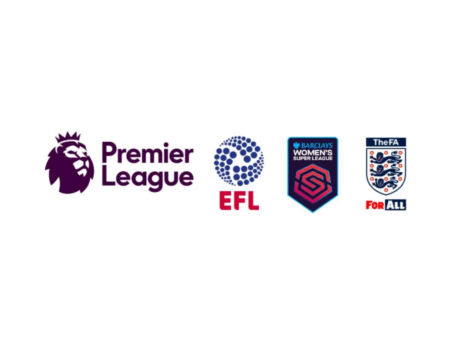Harassment in sports betting can undermine the integrity of sports competitions and create a hostile environment for those involved, necessitating measures to address and prevent such misconduct. Across the United States, states that have embraced the legalization of sports wagering have not only seen economic benefits but also faced challenges related to the potential harassment of athletes and officials by bettors. Recognizing these issues, bipartisan approach are underway to safeguard those involved in sports from such abuse.
Harassment in Sports Betting
Harassment in sports betting has emerged as a critical concern. While the legalization of sports wagering has brought economic advantages to many states, it has also exposed athletes and officials to increased risks of harassment and abuse. Recognizing the gravity of these challenges, legislators across the United States are taking bipartisan action to ensure the safety and integrity of sports competitions.
Across the United States: Understanding the Challenges
Amid the proliferation of legal sports betting, athletes and sports officials find themselves vulnerable to various forms of harassment and abuse. Threats and intimidation from disgruntled bettors have become alarmingly common, posing significant risks to the well-being and safety of those involved in sports.
Ohio’s Legislative Response: Protecting Athletes and Officials
In response to mounting concerns, Ohio lawmakers have enacted stringent measures to address harassment in sports betting. The state passed a comprehensive bill targeting individuals who harass professional athletes, coaches, or sports officials. This proactive approach underscores Ohio’s commitment to safeguarding the integrity of sports competitions and ensuring a safe environment for all participants.
West Virginia’s Initiative: House Bill 4700 (HB 4700)
Similarly, West Virginia has taken decisive action to combat harassment in sports wagering activities. House Bill 4700, a bipartisan initiative, aims to ban individuals exhibiting harmful behavior from participating in sports betting. Empowering the West Virginia Lottery Commission to enforce bans, this bill represents a crucial step towards protecting athletes and officials from harassment and abuse.
The Road to Reform: Legislative Progress and Challenges
HB 4700’s Legislative Journey
Introduced in mid-January, HB 4700 has garnered widespread support within the West Virginia House, receiving 90 votes in favor. This overwhelming bipartisan backing underscores the urgency of addressing harassment issues in sports betting. As the bill advances to the Senate Judiciary Committee, stakeholders remain optimistic that it will set a precedent for other states grappling with similar challenges.
Potential Regulatory Hurdles
While legislative efforts like HB 4700 signal progress, navigating regulatory hurdles remains a significant challenge. Analysts caution that the path to implementation may encounter obstacles, potentially impacting the projected timelines and effectiveness of the legislation. However, both lawmakers and stakeholders are committed to overcoming these challenges to ensure comprehensive protection for athletes and officials.
Safeguarding the Integrity of Sports: A Collective Responsibility
As the sports betting landscape continues to evolve, bipartisan efforts to protect athletes and officials are indispensable. Legislative proposals like HB 4700 represent proactive steps towards safeguarding the integrity of sports competitions and fostering a safe environment for all participants. By addressing harassment and abuse in sports wagering, lawmakers reaffirm their commitment to upholding the fundamental principles of fairness and respect in sports.
FAQs- Your Guide Towards Bipartisan Approach
1. What is the purpose of House Bill 4700?
House Bill 4700 aims to prevent individuals engaging in harmful conduct towards athletes or sports officials from participating in sports betting activities.
2. How does Ohio address harassment in sports betting?
Ohio lawmakers passed a bill targeting individuals who harass professional athletes, coaches, or sports officials, demonstrating the state’s commitment to protecting sports integrity.
3. What role does the West Virginia Lottery Commission play in enforcing HB 4700?
HB 4700 empowers the West Virginia Lottery Commission to enforce bans on individuals exhibiting harmful behavior in sports betting, ensuring compliance with the legislation.
4. How did HB 4700 fare in the West Virginia House?
HB 4700 received overwhelming bipartisan support in the West Virginia House, garnering 90 votes in favor, reflecting the urgency of addressing harassment issues in sports wagering.
5. What challenges might HB 4700 face in the legislative process?
Despite strong support, HB 4700 may encounter regulatory hurdles that could impact its implementation timeline and effectiveness in addressing harassment in sports betting.
6. What are the broader implications of legislative efforts like HB 4700?
Legislative proposals such as HB 4700 represent proactive measures to safeguard the integrity of sports competitions and promote a safe environment for athletes and officials nationwide.
In the face of escalating challenges posed by the legalization of sports wagering, bipartisan approach is essential to protect athletes and officials from harassment and abuse. Legislative initiatives like House Bill 4700 exemplify a commitment to upholding the integrity of sports competitions and ensuring the safety of all participants. As stakeholders continue to advocate for comprehensive reform, the collective effort to safeguard athletes and officials remains paramount.


















